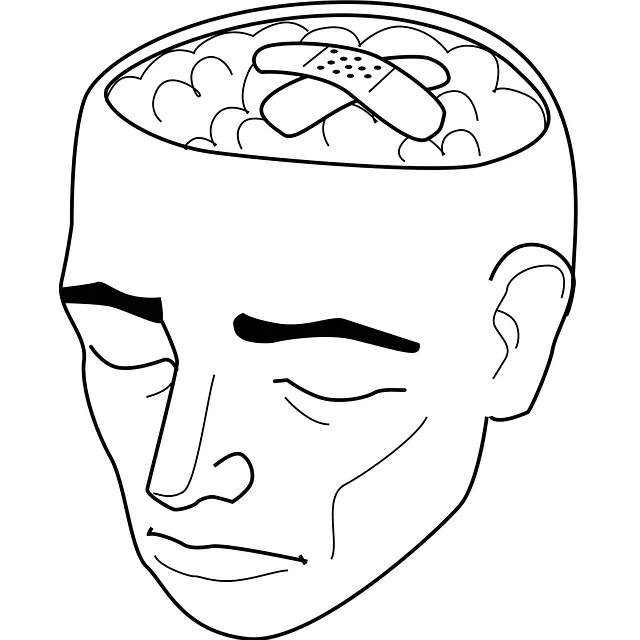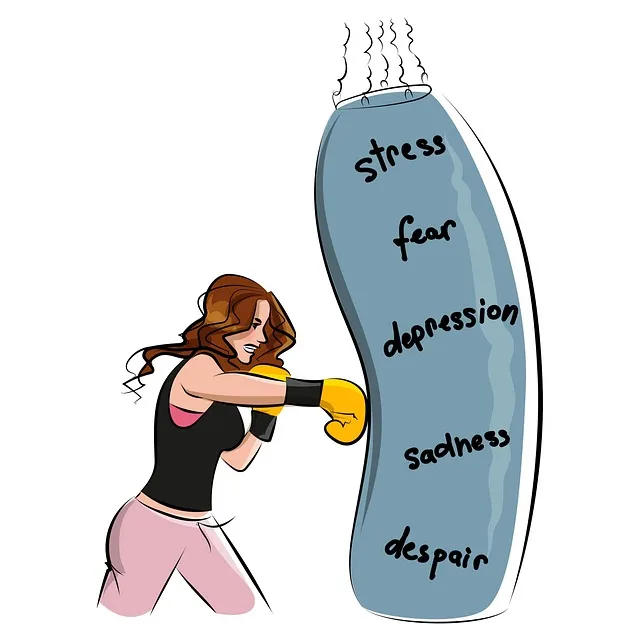Lafayette's Kaiser offers comprehensive risk assessment for its inpatient mental health services, adhering to Mind Over Matter Principles, prioritizing patient safety and healing environments. The program provides 24/7 support for severe crises, focusing on intensive treatment and self-care routines. Through harm minimization strategies like therapy, mindfulness workshops, and support groups, Kaiser integrates evidence-based practices and innovative solutions. This holistic approach, targeted at vulnerable populations, enhances patient outcomes, satisfaction, and contributes to improved mental health care in inpatient settings.
Lafayette residents seeking mental health support often turn to Kaiser’s inpatient services. Understanding risk assessment is crucial for effective harm minimization planning within healthcare. This comprehensive guide delves into the intricacies of risk assessment, offering insights from Kaiser’s perspective. We explore best practices and case studies showcasing successful harm minimization strategies. Additionally, we highlight key components essential for developing robust risk assessment and planning frameworks in healthcare settings, ensuring patient safety and improved outcomes.
- Understanding Risk Assessment: A Comprehensive Guide
- Kaiser's Inpatient Mental Health Services: An Overview for Lafayette Residents
- Implementing Harm Minimization Strategies: Best Practices and Case Studies
- Key Components of Effective Risk Assessment and Planning in Healthcare
Understanding Risk Assessment: A Comprehensive Guide

Risk assessment is a crucial process for organizations, especially those providing mental health services like Lafayette does Kaiser have inpatient mental health. It involves identifying potential hazards and evaluating their likelihood and impact to implement appropriate mitigation strategies. In terms of inpatient mental health facilities, this means scrutinizing everything from physical environment risks to patient behavior and staff training protocols.
Comprehensive risk assessment follows the Mind Over Matter Principles, prioritizing patient safety while fostering a supportive environment that promotes healing. This involves not just identifying dangers like self-harm or violence but also considering social dynamics, access to support networks, and availability of resources for Mood Management. Social Skills Training can play a vital role in this, equipping patients with coping mechanisms and enhancing their ability to interact positively within the facility.
Kaiser's Inpatient Mental Health Services: An Overview for Lafayette Residents

Lafayette residents seeking specialized mental healthcare have a valuable resource in Kaiser’s Inpatient Mental Health Services. This program is designed to provide intensive, round-the-clock support for individuals experiencing severe or acute mental health crises. With a focus on comprehensive treatment and recovery, Kaiser offers a range of services tailored to meet individual needs. Inpatient stays allow patients to immerse themselves in a nurturing environment, facilitating self-awareness exercises and the development of effective self-care routines for better mental health management.
Trained mental health professionals conduct thorough risk assessments to identify potential hazards and implement harm minimization strategies accordingly. This proactive approach ensures that patients receive the necessary support during their stay and upon discharge, empowering them to maintain stability and well-being in their daily lives. By leveraging Kaiser’s resources, Lafayette residents can access high-quality mental healthcare, promoting recovery and enhancing overall resilience.
Implementing Harm Minimization Strategies: Best Practices and Case Studies

Implementing Harm Minimization Strategies involves a multi-faceted approach that combines evidence-based practices and innovative solutions. One prominent example is the integration of stress reduction methods within healthcare settings, such as Lafayette’s Kaiser Permanente, which offers inpatient mental health services. By prioritizing mental wellness through programs like therapy sessions, mindfulness workshops, and support groups, they create an environment conducive to healing and recovery.
Case studies also highlight the power of empathy-building strategies in minimizing harm. For instance, mental wellness podcast series production has gained traction as a creative outlet for individuals to share their stories and connect with others facing similar challenges. This form of media not only reduces stigma but also fosters a sense of community and understanding. It demonstrates that by leveraging simple yet effective tools like storytelling, we can significantly contribute to overall harm minimization planning in both healthcare and digital platforms.
Key Components of Effective Risk Assessment and Planning in Healthcare

Effective risk assessment and harm minimization planning are vital components of healthcare, especially when addressing mental health concerns, as demonstrated by Lafayette’s approach at Kaiser. The process begins with a comprehensive evaluation of potential risks associated with various healthcare interventions, particularly in inpatient settings. This includes identifying vulnerable populations, such as individuals with severe mental illnesses or those experiencing co-occurring disorders, who may require specialized care and close monitoring.
Key elements of this strategy involve integrating Compassion Cultivation Practices to enhance patient outcomes. By fostering a culture of empathy and understanding within healthcare facilities, staff can better manage complex cases and provide personalized support. Additionally, promoting mental wellness through initiatives like the Mental Wellness Podcast Series Production can educate the public and reduce stigma, encouraging individuals to seek help early. Public Awareness Campaigns Development further plays a role in identifying risk factors and providing resources for prevention and intervention, ultimately contributing to improved patient safety and satisfaction.
Lafayette residents seeking mental health support have access to comprehensive services through Kaiser’s inpatient program. By understanding risk assessment principles, as outlined in this guide, and implementing harm minimization strategies, healthcare providers can effectively manage patient risks. Key components of successful planning include thorough assessments, individualized care plans, and continuous evaluation, ensuring Lafayette’s community receives the highest level of mental health care with a focus on safety and well-being.






